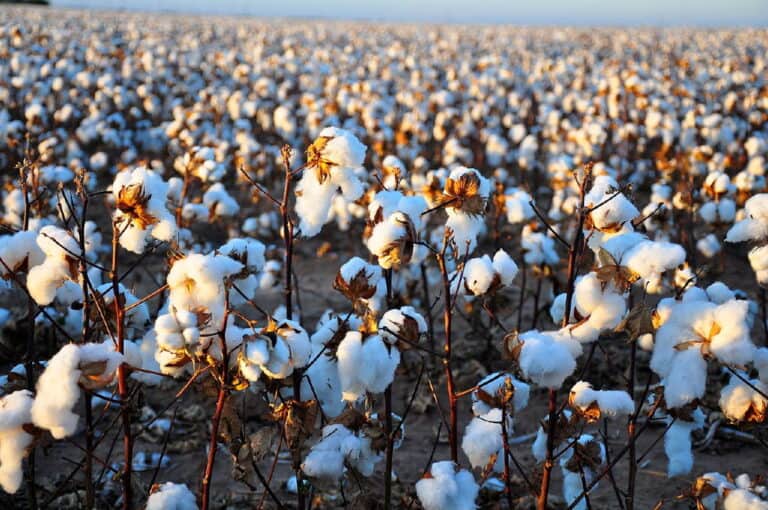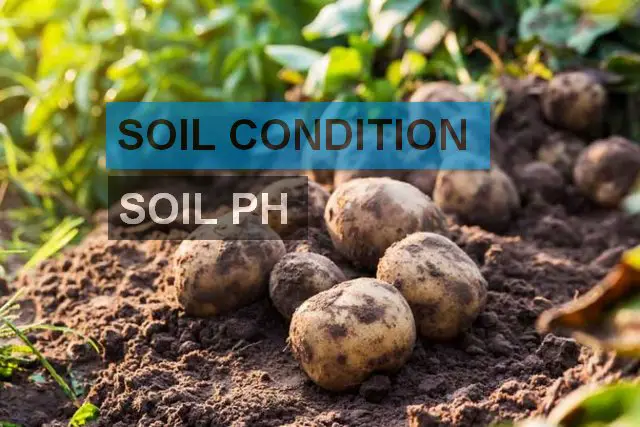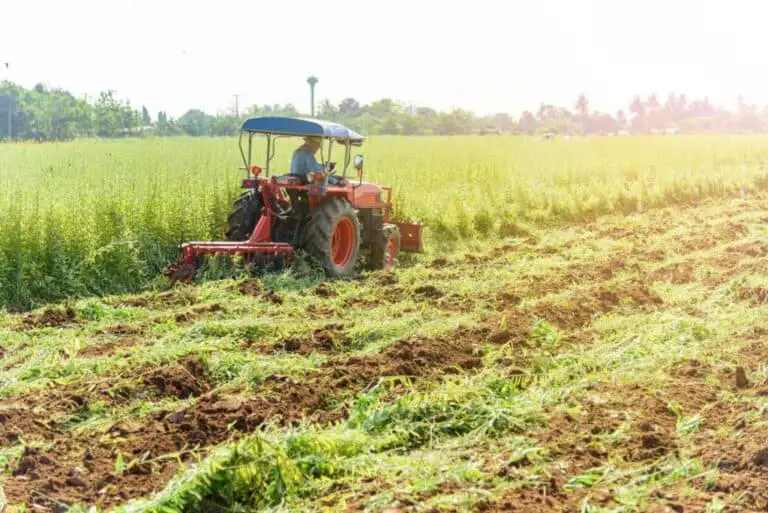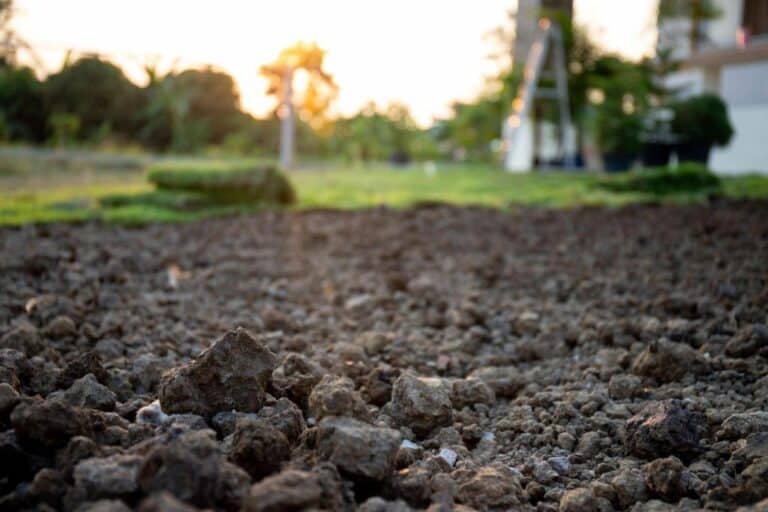Is Goat Manure Better than Cow Manure? Does It Make Good Fertilizer?
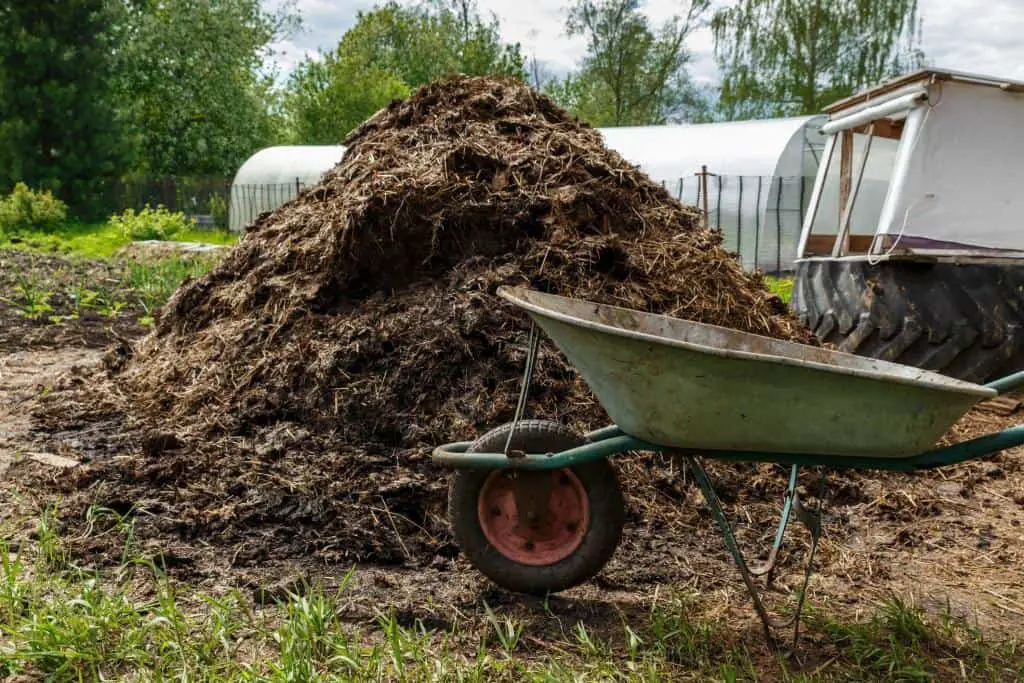
In the hushed world of gardening, where soil breathes life into your cherished plants, a perplexing choice often arises: goat manure or cow manure? It’s a decision that could tip the scales between garden glory and mediocrity.
These two natural fertilizers are the unsung heroes of our horticultural journeys, laden with nutrients and promise. But as we stand at this garden crossroads, one question echoes: Is goat manure truly better than cow manure? Does it have the power to transform your garden into a verdant paradise?
Goat manure has several advantages over cow manure, as it is drier, has less odor, and is easier to work with and spread. But cow manure is not a sloth either. Both have advantages and disadvantages.
Let’s embark on this verdant journey as we unearth the virtues and subtleties of these two contenders, delving into the fertile world of goat manure and cow manure. Your garden’s destiny may very well be written in the pages that follow, revealing the secrets of soil enrichment and botanical ecstasy.
Introduction: Comparing Goat Manure and Cow Manure
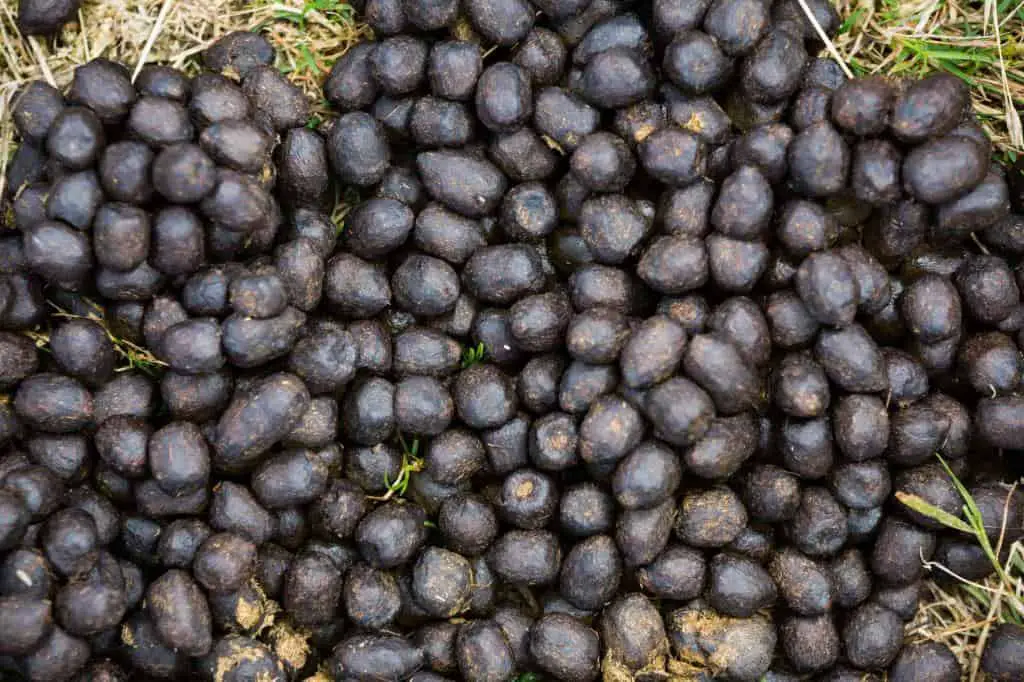
When it comes to organic farming and gardening, manure is a popular choice for fertilizing the soil. While cow manure has long been considered the go-to option, goat manure has gained attention in recent years for its potential benefits. Both types of manure offer unique advantages, so let’s dive into the fascinating world of goat and cow dung.
Firstly, goat manure tends to have a higher nutrient content compared to cow manure. It contains higher levels of nitrogen, phosphorus, potassium, and organic matter. This nutrient-rich composition makes goat manure an excellent choice for improving soil fertility and promoting healthy plant growth.
Another important factor to consider is the odor: While both types of manure can be pungent, goat droppings tend to have a less intense smell compared to cow dung. This is great news for gardeners who may be sensitive to strong odors or want to minimize their impact on nearby neighbors.
Furthermore, the texture of each type of dung differs significantly. Goat pellets are smaller and drier than cow patties, making them easier to handle and spread evenly throughout the soil without clumping together. The smaller size also allows for faster decomposition when applied as compost or fertilizer.
While both goat manure and cow manure have their merits as organic fertilizers, there are some distinct differences between them in terms of nutrient content, odor level, and texture. Understanding these variations can help farmers and gardeners make informed decisions about which type is best
Nutrient Content: Analyzing the Nutritional Value
When it comes to analyzing the nutritional value of different animal manures, goat manure stands out for its impressive nutrient content. While cow manure is widely known and appreciated as a good fertilizer, goat manure offers unique benefits that make it an equally valuable option.
In terms of macronutrients, both types of manure contain high levels of nitrogen, phosphorus, and potassium – essential elements needed for healthy plant growth. However, it’s the micronutrient profile where goat manure shines. Studies show that goat manure contains higher concentrations of vital micronutrients such as calcium, magnesium, zinc, and iron compared to cow manure.
Here’s a snapshot of the nutrient content in goat manure:
| Nutrient | Goat Manure (% by weight) |
| Nitrogen (N) | 2.0% |
| Phosphorus (P) | 0.7% |
| Potassium (K) | 1.0% |
Here’s a glimpse of cow manure’s nutrient content:
| Nutrient | Cow Manure (% by weight) |
| Nitrogen (N) | 0.6% |
| Phosphorus (P) | 0.2% |
| Potassium (K) | 0.5% |
Cow manure tends to have lower nitrogen levels compared to goat manure, but it makes up for it with an abundance of organic matter. This rich organic content improves soil structure and moisture retention, making it a favorable choice for gardens with heavy clay soil.
Analyzing the specific nutrient composition reveals further insights into why goat manure is a top choice for fertilizing plants. Goat dung has been found to have a lower moisture content than cow dung; this means that a given quantity of goat manure contributes a comparatively higher amount of nutrients per unit weight.
Additionally, due to their efficient digestion processes and selective desert browsing habits, goats tend to consume more diverse plant matter than cows. As a result, their waste contains a wider range of trace elements like copper and manganese, which are crucial for promoting optimal soil health and crop productivity.
Goat dung presents us with an array of advantages including richer macro- and micronutrient composition per unit weight as well as more diverse trace element uptake.
Organic matter: Examining the impact on soil health
When it comes to organic matter, it’s not just about the type of manure you use but also how it impacts soil health. Organic matter is essential for maintaining healthy soil as it improves its structure, water-holding capacity, and nutrient availability. Both goat and cow manure contribute to increasing organic matter in the soil, but their effectiveness may vary.
Goat manure is known for being high in nitrogen and phosphorus content, making it a potent fertilizer that can quickly release nutrients into the soil. However, excessive application of goat manure can result in an imbalance of nutrients and potential leaching into groundwater.
On the other hand, cow manure is rich in beneficial microorganisms that promote soil biodiversity and enhance nutrient cycling. Its lower nitrogen content makes it a slower-release fertilizer, providing more long-lasting benefits to the soil.
To make an informed choice between goat or cow manure as fertilizers, considering both their nutrient composition and impact on soil health is crucial. Incorporating a mix of different types of organic matter can provide a more balanced approach towards enhancing the overall health of your soil.
Nitrogen Availability: Assessing Its Effectiveness as a Fertilizer
Nitrogen is an essential nutrient for plant growth and development. It is a key component of chlorophyll, which plays a vital role in photosynthesis. Nitrogen also helps in the synthesis of proteins, enzymes, and DNA in plants. Given its importance, nitrogen availability in soil has become a crucial concern for farmers and gardeners alike.
Assessing the effectiveness of nitrogen as a fertilizer requires looking at various factors, such as its form, solubility, and bioavailability to plants. Nitrogen can be found in different forms, like ammonium (NH4+) or nitrate (NO3-) ions.
Ammonium nitrogen is more stable and less likely to be lost through leaching or volatilization than nitrate nitrogen. However, plants prefer nitrate nitrogen because it allows for easier uptake.
To determine the effectiveness of nitrogen as a fertilizer, it is important to evaluate its solubility in water. Highly soluble fertilizers provide readily available nitrogen to plants but may also result in increased risk of loss through leaching into groundwater or runoff into nearby water bodies.
On the other hand, less soluble fertilizers require microbial activity in the soil to convert them into plant-available forms, ensuring sustained availability over time.
Another aspect that needs consideration is the bioavailability of nitrogen fertilizers – how easily plants can access and utilize them. Slow-release fertilizers are designed to break down gradually over time, providing a controlled release of nutrients that matches plant demand throughout the growing season.
Application Methods: Comparing the Ease of Use
When it comes to using goat manure or cow manure as fertilizer, the application methods play a crucial role in determining ease of use. Goat manure can be applied directly or composted before use. Direct application involves spreading the raw manure on the soil surface, while composting requires mixing it with other organic materials to create a nutrient-rich blend that is easier to handle and apply.
In comparison, cow manure is typically used in its raw form due to its lower nitrogen content compared to goat manure. This means that direct application of cow manure may require larger quantities to achieve the desired nutrient levels for plants. However, unlike goat manure, cow manure can also be liquidized and applied as a foliar spray, providing nutrients directly to the leaves for faster absorption.
Cost Analysis and Economic Viability
When considering the cost of acquiring and using goat manure versus cow manure, several factors come into play, impacting the overall economic viability of each option.
Procuring goat manure often entails lower initial costs due to the relatively smaller size of goat farms and their reduced environmental footprint. However, transportation expenses might be higher in some cases, particularly if the farm is located in remote areas.
On the other hand, cow manure procurement costs may vary depending on the scale of the dairy farm and its proximity to the intended market. Additionally, the quantity required for larger agricultural operations could influence the overall cost-effectiveness of cow manure.
Goat manure, with its potentially higher nitrogen content, could lead to increased crop productivity, thereby maximizing economic gains for farmers. Moreover, its capacity to improve soil structure and water retention may contribute to long-term cost savings associated with irrigation and soil management.
On the contrary, while cow manure might involve higher initial costs, its balanced nutrient profile and widespread availability can offer stable, consistent benefits, fostering sustainable agricultural practices and ensuring reliable crop yields over time.
Assessing the economic benefits and drawbacks of each option involves a comprehensive analysis of the long-term impacts on crop yield, soil quality, and subsequent financial returns. Understanding these cost dynamics aids farmers and agricultural practitioners in making informed decisions, balancing initial investment with long-term economic sustainability.
Environmental Impact: Considering Sustainability and Emissions
When it comes to discussing the environmental impact of livestock manure, sustainability and emissions play a crucial role. Cow manure has long been used as a popular fertilizer due to its nutrient-rich composition, but concerns have arisen regarding its contribution to greenhouse gas emissions. On the other hand, goat manure is gaining recognition as a more sustainable option with a lower environmental impact.
Goat manure contains less nitrogen than cow manure, which means that when used as fertilizer, it releases fewer greenhouse gases into the atmosphere. This is significant considering that livestock farming is responsible for a considerable portion of global methane emissions.
Additionally, goat manure can be utilized in smaller quantities compared to cow manure while still obtaining equivalent benefits for crop growth. This not only reduces overall waste production but also minimizes the energy required for transportation and handling.
Another key factor to consider is land use sustainability. As goats are smaller animals compared to cows, they require less grazing area and consume fewer resources, such as water and feed. By choosing goat farming over cattle farming, we can potentially preserve more land for biodiversity conservation or cultivate crops for human consumption instead.
Read: Is It Safe and Effective to Use Cow Manure in Vegetable Garden?
The Verdict: Is Goat Manure Better Than Cow Manure?
So, is goat manure better than cow manure? The answer depends on your specific gardening needs. Here’s a breakdown of which manure might suit your garden best:
When to Choose Goat Manure:
- Leafy Greens and Lawns: Goat manure’s higher nitrogen content is ideal for leafy green vegetables like lettuce and spinach and for promoting lush lawns.
- Flowering Plants: It’s a great choice for flowering plants like roses and petunias, thanks to its balanced nutrient profile.
- Quick Results: If you’re looking for a faster nutrient release in your garden, goat manure is your go-to option.
When to Choose Cow Manure:
- Improved Soil Structure: Cow manure’s organic matter enhances soil structure and water-holding capacity, making it an excellent choice for amending heavy or clayey soils.
- Long-Term Enrichment: If you’re aiming for long-term soil enrichment, cow manure’s slow-release nutrients will benefit your garden over an extended period.
- General Garden Health: Cow manure is a versatile choice that provides overall improvement to soil health and fertility.
In many cases, gardeners use a combination of both goat and cow manure to take advantage of their respective strengths.
Using Manure Safely
Regardless of whether you choose goat or cow manure, it’s crucial to use it safely. Here are a few guidelines:
- Composting: Composting manure is an effective way to reduce the risk of pathogen contamination. Composting also improves the manure’s texture and makes it easier to handle.
- Aged Manure: If you’re concerned about the potential for plant damage from fresh manure, consider using aged manure, which is less likely to harm your plants.
- Application Timing: Apply manure in the fall or early spring to give it time to break down and release nutrients before your growing season.
Conclusion: Deciding Which Is Better for Fertilizing
In conclusion, deciding which is better for fertilizing, goat manure or cow manure, ultimately depends on your specific needs and gardening practices. Both types of manure can provide valuable nutrients for your soil and contribute to healthy plant growth.
Goat manure tends to have higher levels of nitrogen, while cow manure contains more phosphorus and potassium. Therefore, if you are looking to boost nitrogen levels in your soil, goat manure may be the better choice.
On the other hand, if you require more phosphorus and potassium for flowering or fruiting plants, cow manure may be the way to go. Another factor to consider is availability. If you live in a rural area where cows are more common than goats, obtaining cow manure might be easier and more cost-effective.
So whether it’s goat or cow manure that you choose as fertilizer for your garden beds or potted plants, remember that both offer their own distinct advantages based on their nutrient composition and availability.
Experimentation may also be necessary to determine which type works best with your particular crops or gardening goals. In any case, don’t underestimate the power of organic fertilizers like these when it comes to
FAQs on Goat Manure vs. Cow Manure
Is goat manure less smelly than cow manure?
Goat manure is generally considered to have a milder odor compared to cow manure, making it a more favorable option for those concerned about unpleasant smells in gardening or farming environments.
How does goat manure compare to cow manure in terms of composting?
Goat manure tends to compost more quickly than cow manure due to its higher nitrogen content and smaller particle size, leading to faster decomposition and nutrient release.
Can you use goat manure and cow manure interchangeably in gardening?
Yes, both goat and cow manure can be used interchangeably in gardening, as they provide similar benefits to soil fertility and plant growth when applied appropriately.
Which type of manure is more readily available for purchase?
Cow manure is more readily available for purchase in many areas, especially in regions with a significant dairy industry, whereas goat manure might be more accessible in regions where goat farming is prevalent.
Can using too much cow or goat manure harm plants?
Excessive use of either cow or goat manure can lead to nutrient imbalances, potentially harming plants by causing nutrient toxicity or affecting soil pH levels, emphasizing the importance of proper application and moderation.
How frequently should goat or cow manure be applied to crops?
Goat or cow manure can be applied to crops once or twice a year, depending on the specific nutrient requirements of the plants and the existing nutrient levels in the soil, ensuring that the application is in line with the crop’s growth stages.
What are the best practices for composting goat or cow manure?
The best practices for composting goat or cow manure involve creating well-balanced compost piles with the right mixture of organic materials, maintaining proper moisture levels, and regularly turning the compost to promote effective decomposition and pathogen reduction.
How does the use of goat or cow manure impact the taste of crops?
The use of goat or cow manure can enhance the taste of crops by improving soil quality and nutrient content, leading to healthier and more robust plant growth, which can positively influence the flavor, texture, and overall quality of the produce.

